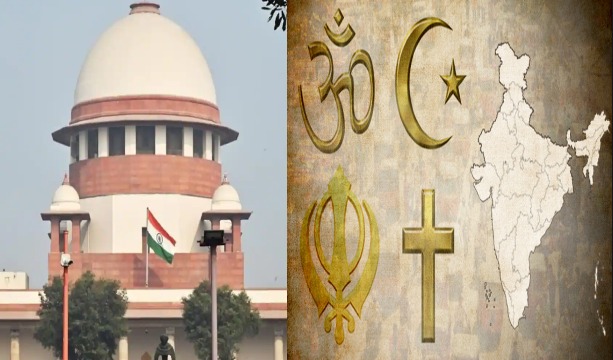
The Supreme Court recently granted bail to a Gujarat-based Islamic scholar and maulvi accused of forcibly converting 37 Hindu families and 100 Hindus.
A Bench of Justice MR Shah and Justice CT Ravikumar proceeded to pass the order in favour of the petitioner, Varyava Abdul Wahab after noting that he had appeared before the investigating officer for interrogation as per the Court’s earlier order.
“Having heard Mr. Dushyant Dave, learned Senior Advocate, appearing for the petitioner and Mr. Kanu Agarwal, learned counsel, appearing for the State and in the facts and circumstances of the case narrated herein above and the fact that the petitioner has been protected by interim order since 13.05.2022 and thereafter has appeared before the Investigating Agency as per the subsequent order passed by this Court, We deem it proper to confirm the ad interim order passed earlier and direct that, in case of arrest of the petitioner, he be released on bail on the terms and conditions, which may be imposed by the learned trial Court,” the bench stated.
The Court was hearing a Special Leave Petition (SLP) challenging an order of the Gujarat High Court which rejected Varyava Abdul Wahab application seeking anticipatory bail.
The Gujarat High Court has denied anticipatory bail to Varyava Abdul Wahab, who is accused of forcibly converting 37 Hindu families and 100 Hindus to Islam.
It was also claimed that the Applicant enticed them with financial aid and converted a house built with government funds into a place of worship, Ibadatgaah.
During the previous hearing, Advocate Kanu Agrawal, representing the State of Gujarat, stated that the petitioner was giving evasive answers during the interrogation, necessitating a custodial investigation.
Advocate Dave, who is appearing on behalf of the petitioner, refuted this.
As a result, the Court granted the investigating agency permission to file an application for a custodial investigation, which will have to be heard on its merits if necessary.
“It goes without saying that if the State/Investigating Agency is of the opinion that the custodial investigation is required, in that case, it will be open for the Investigating Agency to move an appropriate application before the concerned Court and the present order shall not come in the way of the Investigating Agency,”
In addition, the court made it clear that it had not made any comments regarding whether or not the Investigative Agency should be permitted to conduct a custodial inquiry.




